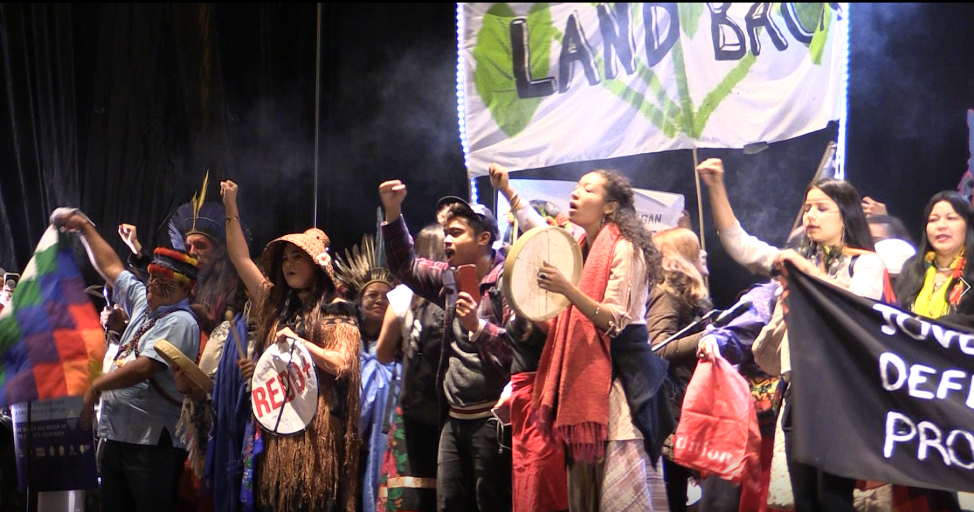Article /
Reflection on COP25

Outcomes and Impacts
February 11, 2020. The youth response to the major climate conference of the year, the COP25 (Conference of Parties) felt very potent. I am experiencing and understanding more of the scale of the climate crisis, as well as the scale of the efforts to manage the crisis.
It was interesting, and admittedly disturbing, to be at COP25 where such important negotiations were happening – somehow the humans at those tables have the power to influence the billions of humans across the globe who were not so lucky to get a seat.
There was a buzz of energy with hundreds of youth united in our cause from all over the world attending and protesting the conference. Dozens of Indigenous youth from all over South America flew on an airplane for the first time, having to come all the way to Spain to defend their forests and waters – a disheartening symbol of South America’s colonial past and how that cloud continues to affect the continent’s present. It is incredibly powerful to witness the weight of the words of the Indigenous peoples of the world, with their unbroken connection to and understanding of the Earth as the source of medicine, sustenance, and life itself.
Despite awareness of global climate change skyrocketing in 2019, people who are most impacted by these changes are still being ignored. The voices of those from small-island nations, the global south, Indigenous Nations, youth, women, and other marginalized people are being silenced, while the agendas of polluting mega-industries continue to be amplified.
The result of COP25 was quite disappointing. Jennifer Morgan, Executive Director of Greenpeace, told journalists, “in the 25 years that I have been at every COP, I have never seen the gap bigger between the inside and the outside,” referring to slow movement from politicians inside the conference compared to the swift action being demanded by activists on the outside. Despite such a loud global response to climate change this year, politicians still lack the will to act. Hopefully leading up to the COP26 in Glasgow (November 2020), there will be much more effort to increase overall climate literacy in schools and workplaces. Social movements will continue to grow, awareness will continue to spread, and fossil fuels will – hopefully – remain in the ground. Ultimately, at COP26 we must remain hopeful that politicians will be able to truly represent people and communities, and not just the petro-state and corporate monoliths.
In Madrid I noticed more conversations about the intersectionality of climate change and social injustices. Neoliberalism, colonialism, and sexism are all causes and outcomes of climate change – a negative feedback loop. As a result, we continue to understand climate change as an Indigenous rights issue, as a women’s rights issue, as a class rights issue, and as a human rights issue. The solutions to this problem must go far beyond technological and market-based solutions. We must also reckon with our collective histories in order to secure our future.
At the Social Summit – a gathering that was happening in conjunction with COP 25 – we heard a report from human rights activist and director of War on Want, Asad Rehman. Rehman spoke passionately about what he felt was happening at COP25. The conference was “an argument between who is going to live, and who is going to die”. Negotiations were focused around loss and damage: who gets funding and compensation for the effects of climate change. The US and EU were trying to excuse themselves of any liability and block any support going to the global South. This lack of accountability from the globe’s most powerful economies illustrates one of the greatest hurdles the climate change movement will have to overcome.
Despite all the disappointments of COP25, it was an incredible feeling to be a part of Fridays for Future on November 6th with an awe-inspiring half million people. It does seem that despite the total ‘COP-out’ that happened in Madrid, social movements will continue to grow and gain power, which offers hope.
There are scores and scores of phenomenally intelligent, passionate people working on climate justice. Ultimately, we need to panic, but also remember to breathe. I feel deeply grateful and inspired by my generation. It is a true gift to be among such tirelessly intelligent, resilient and courageous young people who are uniting all over the world.
